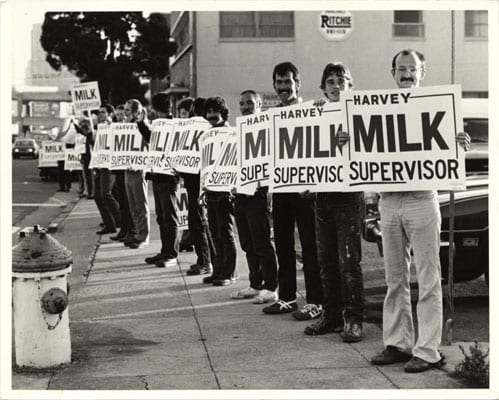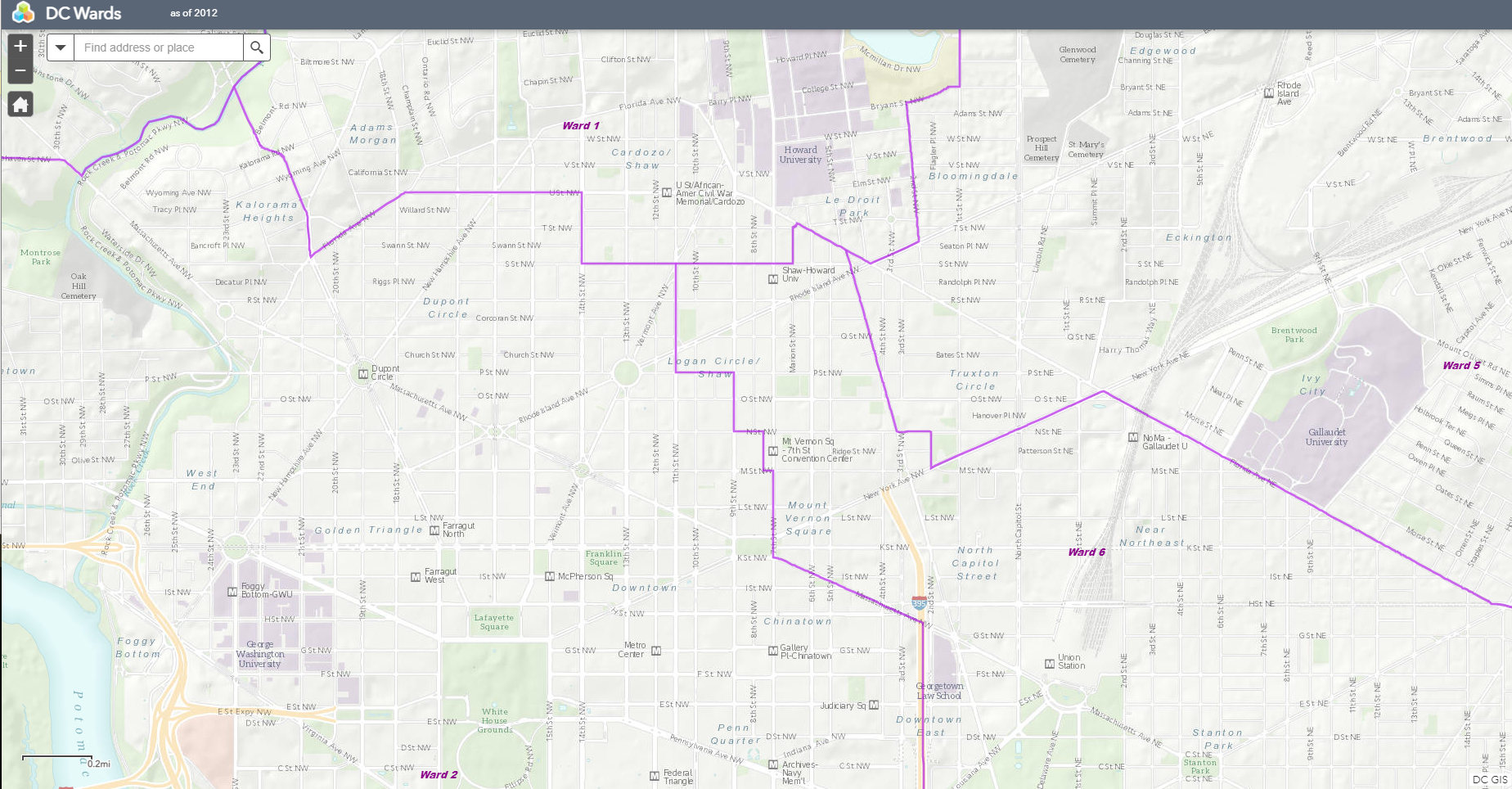Redistricting and the LGBTQ Community
Redistricting efforts in 2021 and 2022 will have enormous consequences for LGBTQ representation at every level of government – and the actions we take now will determine that future. Districts can be redrawn to encompass LGBTQ neighborhoods and communities and strengthen our voting power – increasing the number of LGBTQ elected officials. Or, lines can be drawn to intentionally or unintentionally fracture LGBTQ neighborhoods, depriving us of political power and diminishing our ability to elect LGBTQ leaders.
We Belong Together – a project of LGBTQ Victory Fund – is asking LGBTQ leaders, organizations and YOU to solidify LGBTQ political strength and ensure our numbers in elected office grow for the next decade and beyond.
Why Redistricting Matters
Harvey Milk Won Because of Redistricting
LGBTQ San Franciscans made up 20 percent of city voters and turned out in high numbers, yet no LGBTQ candidate could win because elections were held citywide (at-large). Harvey Milk lost his 1973 Board of Supervisors race because of this system, but then became determined to change it.
The LGBTQ community played a leading role in converting city elections from at-large contests to smaller district-based contests – and maps were drawn to keep the Castro neighborhood together. After this change, Harvey ran again, winning the biggest victory of any non-incumbent candidate because of overwhelming support from LGBTQ voters. Harvey made history, becoming the first out elected official in California, because of redistricting.


Washington, DC has no out LGBTQ city council members potentially because concentrations of LGBTQ voters are split into different districts.
Cracking and Packing: LGBTQ-Style
Sadly, because of the discrimination we face, much LGBTQ data is still not gathered by our government on where we live, but we have a pretty good idea. In many places around the country there are distinct efforts to separate our community. A perfect example of our voices being divided is in Wilton Manors, the first all-LGBTQ led municipality in the country, which is separated from most of the LGBTQ mecca of Ft. Lauderdale (which has a gay mayor).
Even in the city with the most LGBTQ people per capita, Washington DC, LGBTQ people currently are not represented on council. Could it be because a large chunk of areas where LGBTQ nightlife are centered are separated from other areas of LGBTQ strength? These are the questions that we need to ensure mapmakers answer.
What We’re Doing
Thousands of redistricting authorities will draw new districts for school boards, city councils, state legislatures and the U.S. Congress in 2021 and 2022 – and the rules and officials involved vary enormously. Yet we must ensure these authorities build district maps that keep LGBTQ neighborhoods and community together, so we can leverage our political power – and they can’t continue to use the government to continue to discriminate against our community.
To do this, we must convince these authorities to:
- Identify concentrations of LGBTQ people through census and population data, locations of LGBTQ neighborhoods and businesses, and even hate crime reports, among other data.
- Define the LGBTQ community as a “community of interest” for redistricting – much like many racial, economic and cultural groups – and therefore ensure our interests are considered and respected during the map-making process.
To achieve that, We Belong Together is embarking on a first-of-its-kind effort for our community, with four primary objectives:
- Educate allied organizations, elected officials and redistricting authorities on why LGBTQ people are a legitimate “community of interest”;
- Provide resources and information to advocates and organizations ready to engage redistricting authorities;
- Partner with local and state-based organizations on testimony to redistricting authorities; and
- Gather and provide the LGBTQ population data necessary to assist mapmakers.
What You Can Do
With thousands of redistricting authorities, we need committed leaders in every city and state. To get involved, you can:
- Find the redistricting authority in your city, county or state;
- Tell LGBTQ and allied friends and family and community organizations about the importance of redistricting and creating an “LGBTQ community of interest,” and ask them to get involved; and
- Raise awareness among redistricting authorities and elected officials through emails, attending public redistricting or other meetings, and engaging local media.
Our We Belong Together toolkit [PDF] provides more detailed information on how to get involved, including template letters and additional tools.
Top Targets
Influencing redistricting authorities to respect the LGBTQ community is beneficial in every city, county and state, yet Victory Fund will target five states whose redistricting authorities are non-partisan:
But don’t worry! If your state is not listed, we are still engaged and ready to help – and every municipality will be doing this work and are eager to hear from you! Let us know if you are ready to work on redistricting in your community.
Coalition Partners
